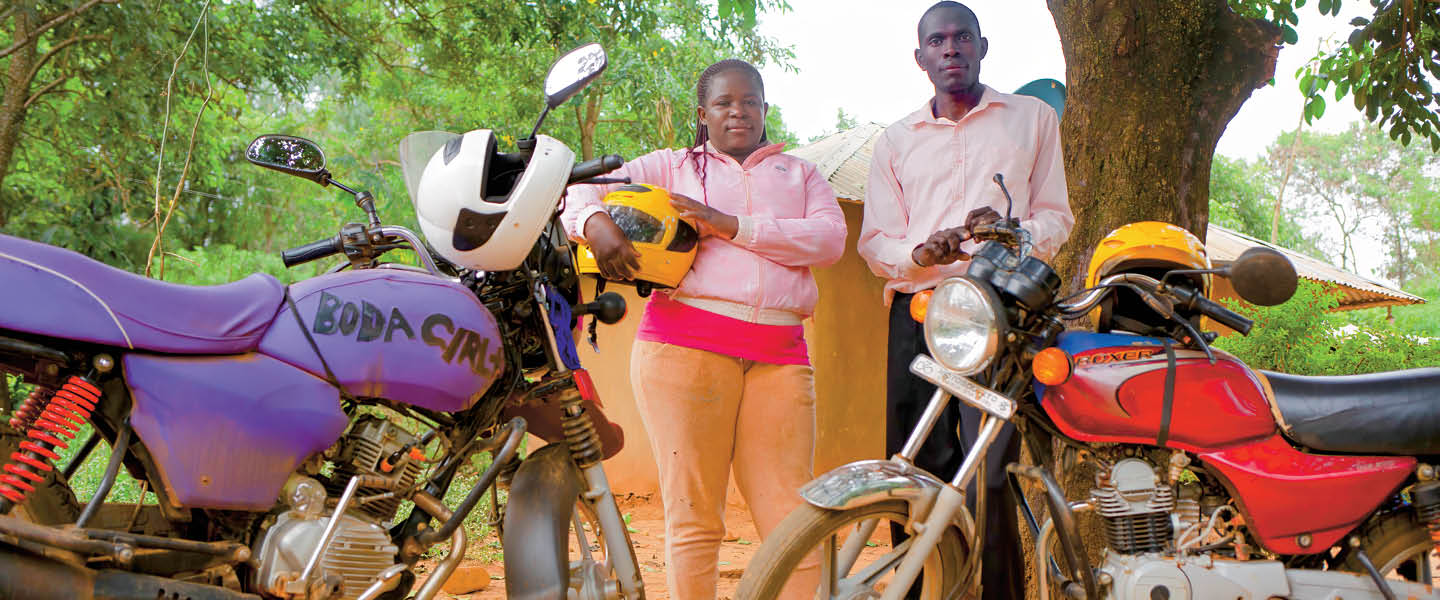When her three children didn’t have enough to eat, Monica Atieno decided to apply for a job through a new program in Kenya that was recruiting women to become motorcycle taxi drivers—a profession long dominated by men.
At first, she kept her plan a secret from her husband, who was himself a motorcycle taxi driver in their town of Ukwala, in western Kenya. When he found out, he was furious and threatened to leave. But Atieno says she told him: “I’m going to do it because I know what I’m going to achieve.”
Last year, after hundreds of hours of training, she became a motorcycle taxi driver—a “Boda Girl,” as they’re called, named after the two-wheeled taxis called boda-bodas. Atieno’s now one of about 1,000 women among the estimated 2.5 million motorcycle taxi drivers in Kenya, according to the Boda Boda Safety Association, an advocacy group.
Monica Atieno’s three children didn’t have enough to eat. She decided to apply for a job through a new program in Kenya. The program was recruiting women to become motorcycle taxi drivers—a profession long dominated by men.
At first, she kept her plan a secret from her husband. He was a motorcycle taxi driver in their town of Ukwala, in western Kenya. When he found out, he was angry and even threatened to leave. But Atieno says she told him: “I’m going to do it because I know what I’m going to achieve.”
Last year, after hundreds of hours of training, she became a motorcycle taxi driver. She’s called a “Boda Girl.” The name refers to the two-wheeled taxis called boda-bodas. Atieno’s now one of about 1,000 women among the estimated 2.5 million motorcycle taxi drivers in Kenya, according to the Boda Boda Safety Association, an advocacy group.

